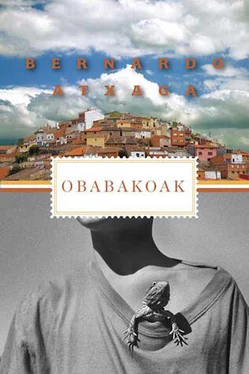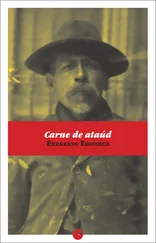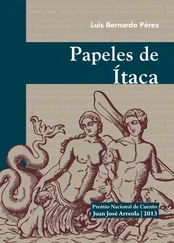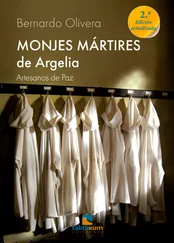Bernardo Atxaga - Obabakoak
Здесь есть возможность читать онлайн «Bernardo Atxaga - Obabakoak» весь текст электронной книги совершенно бесплатно (целиком полную версию без сокращений). В некоторых случаях можно слушать аудио, скачать через торрент в формате fb2 и присутствует краткое содержание. Год выпуска: 2010, Издательство: Graywolf Press, Жанр: Современная проза, на английском языке. Описание произведения, (предисловие) а так же отзывы посетителей доступны на портале библиотеки ЛибКат.
- Название:Obabakoak
- Автор:
- Издательство:Graywolf Press
- Жанр:
- Год:2010
- ISBN:нет данных
- Рейтинг книги:3 / 5. Голосов: 1
-
Избранное:Добавить в избранное
- Отзывы:
-
Ваша оценка:
- 60
- 1
- 2
- 3
- 4
- 5
Obabakoak: краткое содержание, описание и аннотация
Предлагаем к чтению аннотацию, описание, краткое содержание или предисловие (зависит от того, что написал сам автор книги «Obabakoak»). Если вы не нашли необходимую информацию о книге — напишите в комментариях, мы постараемся отыскать её.
Obabakoak
The Observer
Obabakoak — читать онлайн бесплатно полную книгу (весь текст) целиком
Ниже представлен текст книги, разбитый по страницам. Система сохранения места последней прочитанной страницы, позволяет с удобством читать онлайн бесплатно книгу «Obabakoak», без необходимости каждый раз заново искать на чём Вы остановились. Поставьте закладку, и сможете в любой момент перейти на страницу, на которой закончили чтение.
Интервал:
Закладка:
“So you’re Klaus Hanhn!” he exclaimed, putting on a surprised face.
The figure in the reflection nodded and began to laugh. But his laugh was not a guffaw, it was a soft tremor that emerged from some place far from his heart and gradually expanded outward to his skin. That laugh had lain submerged since he was six or seven years old, and now at last it lived again.
“Aren’t you laughing, Alexander?” he asked as he walked on.
“Can’t you see that I am?” replied his brother.
He reached the door of Sebastian’s almost without realizing it. Happiness made distances seem much shorter, there was no room for weariness in a happy heart.
Manicures, French lotions, facial massages using a method imported from the Orient — that’s what the poster said, “imported”—exclusively for you. Klaus read the list with amusement and then firmly pushed open the door. He was prepared to try each and every one of the house’s specialities.
A young woman led him to a room rather like a dressing room.
“Do you think you could make me taller? I’d like to be as tall as you,” he joked. The woman was in fact very tall.
“There are some things I can’t do, at least not yet. But I will leave you looking more handsome,” she replied, rubbing a reddish liquid into his face. Her accent recalled the proximity of the St. Pauli nightclubs.
“That’ll do fine,” Klaus said. In fact, he didn’t need to be any taller. According to the travel brochure, the inhabitants of the island of turtles were all fairly short in stature.
“First I’ll give you a full body massage. Put your nice clothes on those hangers over there and lie down,” ordered the masseuse in decidedly professional tones. She pointed theatrically to the place — to “those hangers”—rather like a stewardess indicating the emergency exits.
Klaus Hanhn recognized the gestures and his thoughts drifted off to the journey he would make that night. He thought about the airport, the suitcases he had checked in the day before, the twenty gift-wrapped belts he’d placed in those suitcases, and the ten-thousand-mark notes — folded and refolded — contained in each of those belts. Twenty belts, two hundred thousand marks. The treasure that was to provide the foundation of this New Era of His Life.
Then he thought of the savings that would allow him to do without that treasure for a sensible period of time. Far off on the island of turtles. Eight hours from now night would fall and the red, winking light of the plane would make its way through the darkness of the sky.
The hands of the masseuse pressed into his flesh, producing tiny spasms of pain that just as suddenly became pleasure. He closed his eyes in order, mentally, to follow the flight path of the plane until it landed on the island. But there was so much joy in his heart that he couldn’t think. It blinded him, the way the sun blinds those who look directly at it.
The objectives he’d set for himself for the morning of his birthday ended there, with the visit to Sebastian’s beauty salon. Out on the pavement of Brauerstrasse again, Klaus hesitated over which direction to take. He looked at his watch. It was two o’clock.
“Which is the best restaurant in this sad city, Alexander?” he asked as he looked up and down the street, completely empty at that hour. But his little brother knew nothing about the banal facts of the world and remained silent. “I’ll go to the Paris restaurant,” Klaus decided after a moment’s thought.
It was a restaurant frequented by all the wealthy inhabitants of the prosperous parts of the city, the ones who ordered speciality breads for their family suppers. It was bound to be excellent. Moreover, it was in the Stadtpark, not far from Brauerstrasse.
Klaus raised an arm and hailed a taxi.
“The Paris restaurant, please,” he said to the driver with feigned tedium. He tried to disguise his normal accent.
“There’s no need to talk like that, Klaus. You’re wearing so much cologne, no one would dare question your high social status,” said Alexander with a little smile he intended to be ironical.
The dining room of the restaurant was broken up by golden columns, and the tables — about twenty at most — were scattered around a huge glass aquarium. Through the restaurant windows you could see the trees in the Stadtpark, their leaves already stained with red. The napkins were blue and the tablecloths white.
Klaus Hanhn sat down at a table near the aquarium, with his back to the other customers. He wanted to dine facing the tropical fish that swam in the aquarium.
“It would be a good idea to get accustomed to what we’ll be seeing on the island of turtles, Alexander,” he remarked.
“What’s your name?” he said in a firm voice. The question was directed at the waiter who’d just approached him bearing the menu.
“Marcel, monsieur, ” replied the waiter, rather ruffled.
“ Trés bien, Marcel. I want your best advice. Today is my birthday.”
Klaus was looking apprehensively at the menu he held in his hands. Despite the fact that the ingredients of each dish were given in brackets below, in small writing, in a manner he could understand, most of the names written there were utterly incomprehensible to him.
“Our savarin is excellent, monsieur, ” the waiter advised him, having murmured a few words of congratulation.
“ Savarin it is then.”
Klaus tried to find that particular dish and ascertain its ingredients. But he couldn’t. He got lost in that strange menu.
“Isn’t that rather a strange name for a meat?” he hazarded.
“Forgive me, monsieur, but it is in fact a fish. But you’re quite right. It is rather a strange name,” agreed the waiter, giving him a friendly smile.
“Of course, of course,” he said hurriedly.
“You’ve made a fool of yourself,” he heard a voice say. His brother’s voice was sharp, as it always was when he wanted to hurt him.
They were brothers and they loved each other, but there were times when Alexander didn’t seem to understand him.
“You know what Marcel will say as soon as he gets to the kitchen, don’t you?” he went on in that same sharp tone. “He’ll say that the customer sitting at the table next to the aquarium is a fraud, a vulgar man putting on the airs of a rich one. You really made a fool of yourself there, Klaus.”
A cold sweat broke out on Klaus’s forehead and hands. He was still looking for that savarin.
“There it is, monsieur, ” said the waiter helpfully, bending over the menu.
“I can see it! I can see it!” said Klaus brusquely. The dish ( Savarin scandinave avec brocoli d’aneth ) appeared in a separate section of the menu, among the ten dishes recommended by the chef that day.
The price of the dish made him open his eyes wide. It was ten times the price of any meal he’d eaten in his long and still very recent past.
“Fine. Bring me that,” he ordered the waiter. But he was stunned by the price and had to make a tremendous effort not to show it.
“You think like a poor man, Klaus. You’re rich and you still think like a poor man. You’ll never change,” the sharp voice said reproachfully.
“Be quiet, Alexander!” All those years together and he still didn’t understand what made his little brother tick. Sometimes he turned against him, for no reason. It was as if he enjoyed making him suffer.
“And as an hors d’oeuvre, monsieur ?”
“Crêpes de roquefort,” replied Klaus, without knowing what it was he was ordering.
“And a white wine of the region? A Rhine wine perhaps?” The waiter was still smiling but not as warmly as before. For a moment Klaus thought he caught an air of mockery in his look.
Читать дальшеИнтервал:
Закладка:
Похожие книги на «Obabakoak»
Представляем Вашему вниманию похожие книги на «Obabakoak» списком для выбора. Мы отобрали схожую по названию и смыслу литературу в надежде предоставить читателям больше вариантов отыскать новые, интересные, ещё непрочитанные произведения.
Обсуждение, отзывы о книге «Obabakoak» и просто собственные мнения читателей. Оставьте ваши комментарии, напишите, что Вы думаете о произведении, его смысле или главных героях. Укажите что конкретно понравилось, а что нет, и почему Вы так считаете.











